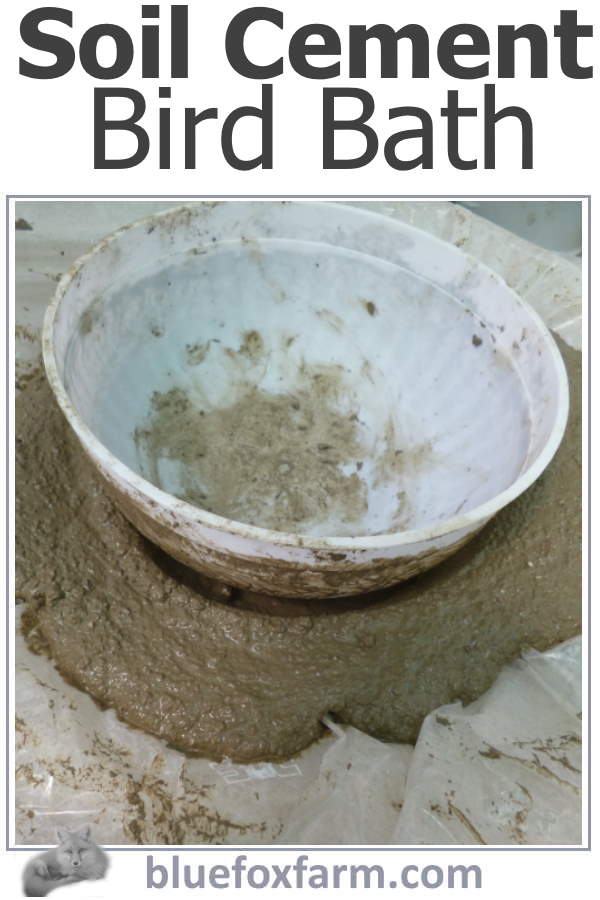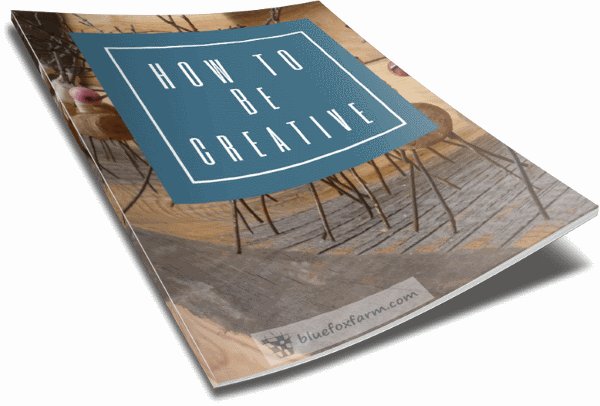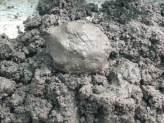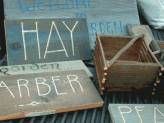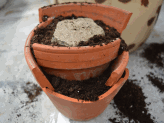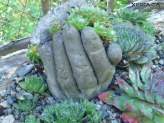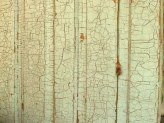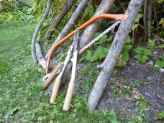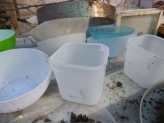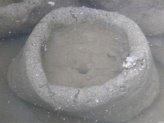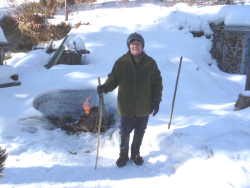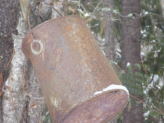Soil Cement Bird Bath
A Garden Art DIY Tutorial
Those that know me will recognize the addiction I have to Hypertufa, a mix of Perlite, Portland Cement and Peat Moss. All this equals an incredible array of possibilities - in fact, endless.
One of the characteristics of hypertufa is that it's porous once it's dry - but what happens when you want it to hold water?
I use a similar mixture, except instead of the peat moss, I use some of my soil which is extremely silty and sandy.
Please note; this is sub soil, not garden soil with lots of organic matter in it.
This takes the place of the organic matter (peat moss), and creates a waterproof finished product - just what you need for a bird bath.
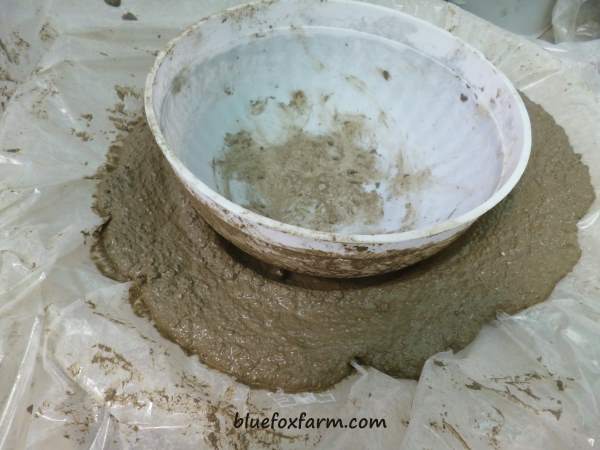
Some things to keep in mind; the placement of any bird bath should be near some twiggy shrubs or small trees, for the birds to assess the bird bath before they visit, and to perch for the rest of their grooming and preening.
It also needs to be away from anything that could be used for cats to sneak up on the frantically bathing birds.
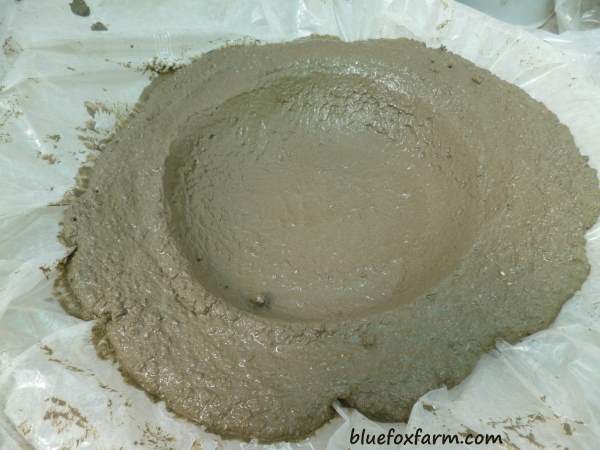
I was recently asked for instructions for some different ways to make a pedestal to put the birdbath on.
My first thought on how to do this pedestal was to use a piece of pvc plumbing pipe, which I just happen to have available.
The pipe can be put into a plastic bag, and then the hypertufa mix or soil cement mix can be slathered over the pipe and the bag used to mold the mix into the required rough shape.
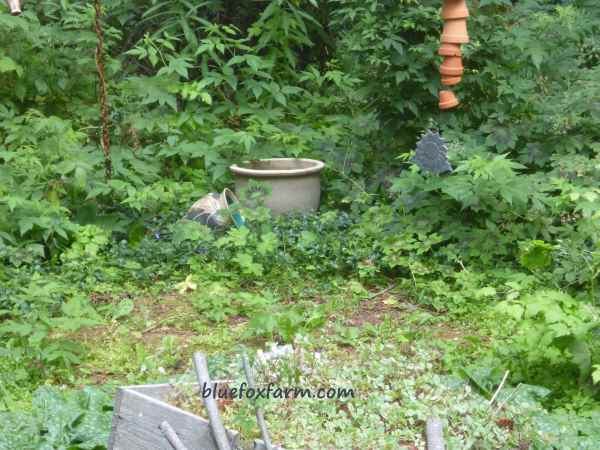
Or, if you're like me and impatient, use a big clay or pottery pot - no fuss, no muss.
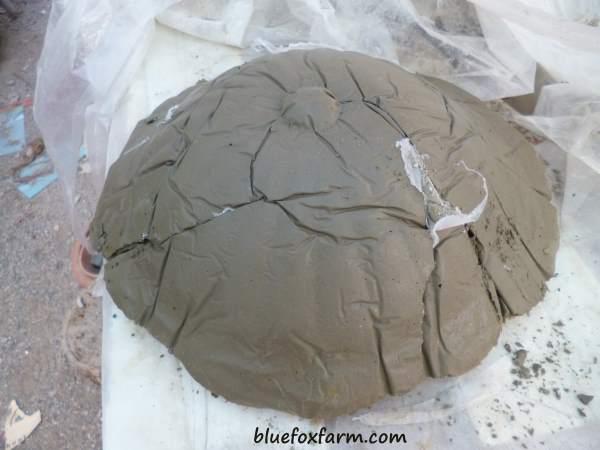
Other thoughts about this; using soil cement is a different kind of mix. It tends to slump off, rather than stick in place the way hypertufa does.
For this reason, I might use soil cement to make several blocks or tubes, using plastic nursery pots as molds, one gallon size. Then the tubes would be stacked with a piece of rebar holding them in place, and the bird bath placed on top of it.
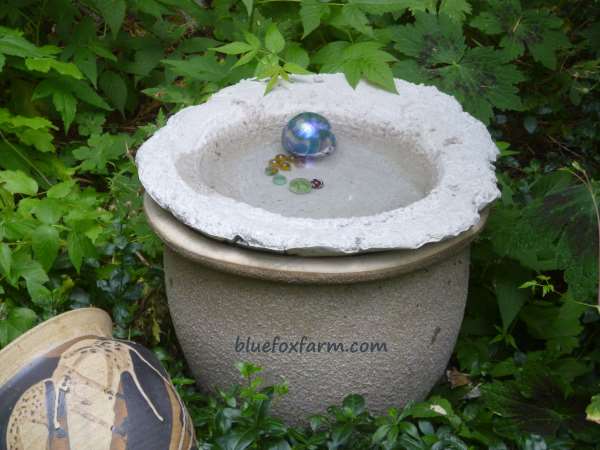
Oh brother, make a decision and stick to it; the big pot is the final solution and it looks great! Sometimes, simple is best.
Learn what it takes to be creative - we all have the gene but how do we develop it? Get the free guide!
Fill in the form below for your copy;
(Don't be disappointed - use an email address that will accept the free download - some .aol email addresses won't.
If you don't see your download within a few minutes, try again with another email address - sorry for the bother.)
